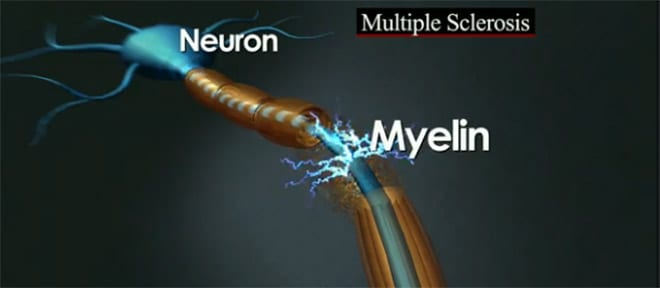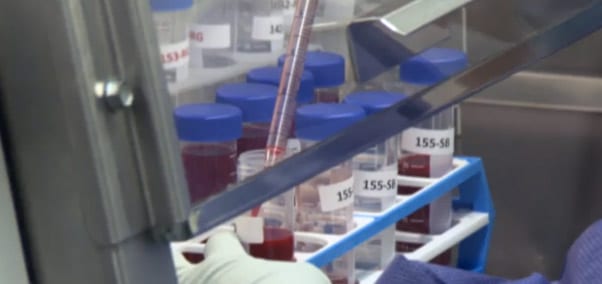
Latest advances in biomedicine and integrative medicine
Multiple sclerosis is a progressive disease that damages the central nervous system. It affects 2.3 million people worldwide. It is classified as a autoimmune diseasein which a person's own immune system attacks the myelin.which is the fatty covering that covers and protects the nerves of the spinal column and brain.
The symptoms symptoms of multiple sclerosis can range from mild to severe, and may include numbness and tingling, loss of vision, chronic fatigue, problems with balance and coordination, and sometimes a decline in memory and thinking skills. Sometimes the damage from the disease can be permanent and lead to disability and paralysis. Although there is no cure for this chronic disease, in recent years a number of new drugs have been approved and have expanded the options for a disease that often deprives a person of essential functioning and alters quality of life. There are currently 12 drugs on the market that reduce symptoms and slow the progression of the disease. Some also reverse nerve damage.
The advances in genomics have provided new clues to how best to treat and manage the disease. In 2011, scientists completed the largest gene study to date, which compared the DNA of nearly 10,000 people with multiple sclerosis with the DNA of more than 17,000 healthy individuals. The researchers were able to confirm 23 known genetic links previously identified, 29 genes and five genes that contribute to multiple sclerosis.
Most patients with multiple sclerosis are diagnosed with RRMS (relapsing remitting multiple sclerosis). which is characterised by periods of symptom relapse followed by periods of recovery or remission. Symptoms vary and may include disturbances in speech, vision and movement. Over several years, the disease may worsen and change to a more progressive form.
We recommend this multiple sclerosis video of the Spanish Foundation for Neurological Diseases
Stem cell transplantation for multiple sclerosis has been a topic of great interest to scientists, doctors and patients.
A new experimental treatment that uses the stem cells The patient's own personal story may offer new hope for people with multiple sclerosis.
In a small clinical trial, published last December, patients experienced long-term remission of the disease after undergoing a transplantation of their own haematopoietic stem cells. This type of cell is responsible for the formation of blood in the body and is usually derived from the bone marrow.

Haematopoietic stem cells give rise to all blood cell types: red blood cells, B lymphocytes, T lymphocytes, natural killer cells, neutrophils, basophils, eosinophils, monocytes and macrophages.
The patients also took high-dose immunosuppressive drugs..
The paper reports on the third year of a five-year study. A total of 24 patients with relapsing-remitting multiple sclerosis were enrolled in the trial. With this type of multiple sclerosis, patients have phases in which their disease is active followed by periods in which they experience no symptoms.
Nearly 80% of the trial participants had survived without experiencing a recurrence of MS (multiple sclerosis) symptoms, new brain lesions or increased disability (JAMA Neurol 29 December 2014).
The researchers observed few serious early complications or unexpected side effects.However, many of the participants experienced the expected side effects that can occur after high-dose immunosuppression, including infections and gastrointestinal problems. The study is ongoing and participants will be followed for five years.
Doctors injected the stem cells into the participants to rebuild their immune systems. The patients received no standard drug treatments during the study.
The primary endpoint of the study was event-free survival.which researchers define as survival without death or disease progression with loss of neurological function, new lesions or clinical relapse.
Most participants experienced improved quality of life, as well as improvements in neurological disability and functional scores.
"Notably, participants did not receive multiple sclerosis drugs after transplantation, but most remained in remission after three years," said Daniel Rotrosen, director of the Division of Allergy, Immunology and Transplantation at the US National Institute of Allergy and Infectious Diseases, which sponsored the study. "In contrast, other studies have shown that the best multiple sclerosis treatment alternatives induce much shorter remissions and require long-term use of immunosuppressive drugs that can cause serious side effects."


16 thoughts on “¿La esclerosis múltiple tiene cura?”
i would like to know what type of medication i should take. i was prescribed baclofen but instead of feeling better it has made me worse....
Thank you for your comment, Nery. We appreciate your participation. Best regards. We passed your query to the clinic
it is possible for sclerosis to manifest itself around the age of 70.
I want to know if over 70 years can have Multiple Sclerosis, because I feel symptoms very similar to those I read, please inform me to know and what I have to do, thanks.
I want to know about groups ,I live in New York in Jamaica ny area.
It is very interesting, because in these cases, it is not known how to counteract such a harmful disease, because the medication that is regularly offered in the market to control it or to advance more slowly in my case has not been so, because my stomach already had gastric problems and hernia and with this it was getting worse and instead of having improvement, I was worsening my whole body, so I took the decision to suspend them, even though I have been told that I will get worse, but it does not matter, because I could hardly move from my bed, taking the medication prescribed by medical specialists and the truth is that they do not work, in my particular case, I was better off without them, than I was after taking them, that is why I am interested in the new stem cell treatment and I would like to know how I can contact them or where the clinic is located, and if it would be very expensive, I am from Mexico City and I do not have many resources, but I would like to be healed, that is all I ask, that someone help me. I am 80 years old, and although many think that I no longer have a solution and because of my age they take me less important, I consider myself a person still very capable of doing many things despite my serious health problem and I am a very thoughtful human being who can still contribute a lot to the whole world, but sometimes they do not want to take us into account because of our age, I would be grateful if someone would contact me and give me some hope and hope to continue living. Thank you and I remain at your service. What I was prescribed was prednisone, methotrexate, folic acid, calcium and everything hurt my stomach worse.
Comments are closed.